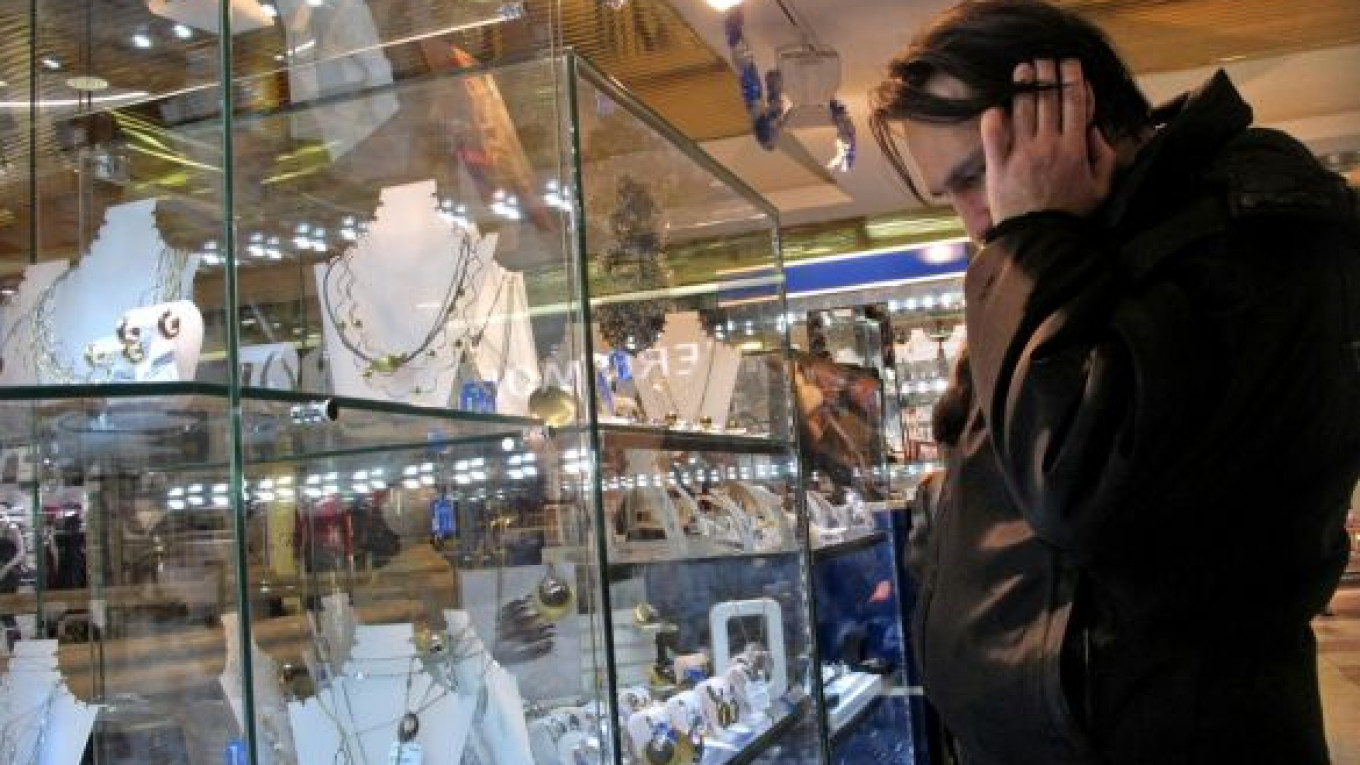The global economic downturn hasn’t hit Russians’ purchasing power significantly, with this year’s spending on gifts and entertainment during the New Year’s holidays expected to grow 11 percent from 2010, while most Europeans plan to cut their holiday expenditures, a survey said Monday.
Russian consumers plan to set aside about 428 euros ($575) for holiday costs, or 11 percent more than last year. More than half of that sum is to be spent on gifts and the remainder on food and entertainment, according to the survey by Deloitte.
The consulting company polled 1,104 people aged between 18 and 65 in six cities with a population of more than 1 million — Moscow, St. Petersburg, Novosibirsk, Nizhny Novgorod, Rostov-on-Don and Yekaterinburg.
European consumers’ average holiday spending is likely to decrease 0.8 percent this year to reach 587 euros, the survey said.
The gap in spending between Russian and European consumers is not very significant given that Russia’s inflation — expected to reach about 7 percent this year — is higher than in Europe, said Vladimir Biryukov, a partner at Deloitte’s consumer business group.
On the other hand, most respondents in Russia have seen their incomes increase and expect them to continue growing in the future, he said by telephone.
According to the survey, most Russians are optimistic about their personal finances, with 67 percent of them saying their purchasing power had increased compared with last year and 40 percent expecting further growth in 2012.
But half of the respondents think that the country’s economy is still in recession, with only 15 percent and 22 percent, respectively, saying the economy is growing or stable, the survey said.
“For Russian consumers, it seems that the crisis is something that has affected their heads more than their pockets at the moment,” Deloitte said in a statement.
This perception largely results in changing consumer behavior, with most survey participants being more cautious about choosing New Year’s gifts this year, Biryukov said.
Russians have become more rational in their holiday spending. The number of people buying presents without looking at the price decreased from 41 percent in 2010 to 34 percent this year, the survey said.
The number of consumers buying gifts on sale and items considered “useful’ has also increased, bringing consumer behavior in Russia closer to that in Europe, Biryukov said.
Of consumers surveyed, 87 percent said they are planning to buy useful gifts this year, compared with 79 percent in 2010, while about 67 percent will choose discounted or generically labeled products, which are cheaper than branded goods, Deloitte said.
Cash, travel and laptops have remained the most-sought after gifts in Russia over the last couple of years, while the most popular gift purchases are actually cosmetics and perfumes, the survey revealed.
A Message from The Moscow Times:
Dear readers,
We are facing unprecedented challenges. Russia's Prosecutor General's Office has designated The Moscow Times as an "undesirable" organization, criminalizing our work and putting our staff at risk of prosecution. This follows our earlier unjust labeling as a "foreign agent."
These actions are direct attempts to silence independent journalism in Russia. The authorities claim our work "discredits the decisions of the Russian leadership." We see things differently: we strive to provide accurate, unbiased reporting on Russia.
We, the journalists of The Moscow Times, refuse to be silenced. But to continue our work, we need your help.
Your support, no matter how small, makes a world of difference. If you can, please support us monthly starting from just $2. It's quick to set up, and every contribution makes a significant impact.
By supporting The Moscow Times, you're defending open, independent journalism in the face of repression. Thank you for standing with us.
Remind me later.


